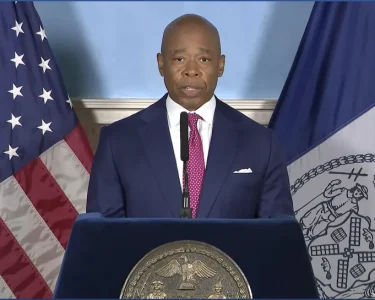In a significant legal ruling, the U.S. Sixth Circuit Court of Appeals has determined that Tennessee is not entitled to receive Title X federal funds due to its restrictive abortion laws. This decision underscores the ongoing national debate surrounding reproductive rights and the allocation of federal funds for family planning services.

The Background of the Case
Title X is a federal program established in 1970, designed to provide comprehensive family planning and preventive health services to low-income individuals. These funds are crucial for supporting clinics that offer a wide range of services, including birth control, cancer screenings, and sexually transmitted infection (STI) testing. However, Title X funds are explicitly prohibited from being used for abortion services.
The legal battle began when Tennessee implemented a series of restrictive abortion laws, which included a requirement that minors seeking an abortion must obtain parental consent and a ban on abortions after a fetal heartbeat is detected, typically around six weeks of pregnancy. These laws were among the strictest in the nation, drawing significant controversy and legal challenges.
In response to Tennessee’s stringent abortion regulations, the Biden administration revised Title X guidelines, stipulating that states with restrictive abortion laws could be disqualified from receiving these funds. Tennessee subsequently sued the federal government, arguing that the new guidelines unlawfully penalized the state for exercising its authority to regulate abortion.
The Court’s Ruling
The U.S. Sixth Circuit Court of Appeals ruled in favor of the Biden administration, stating that Tennessee’s restrictive abortion laws were incompatible with the objectives of the Title X program. The court emphasized that Title X was designed to ensure access to comprehensive family planning services, and the state’s laws created barriers that could impede this goal.
The ruling further noted that Tennessee’s exclusion from Title X funding was not an arbitrary punishment but a necessary measure to uphold the program’s integrity. By restricting access to abortion and imposing stringent requirements on minors, Tennessee’s laws were seen as contradictory to the principles of providing accessible and equitable healthcare to all individuals, particularly those in underserved communities.
Implications for Tennessee and Other States
The court’s decision has significant implications for Tennessee and other states with similar restrictive abortion laws. Without Title X funds, clinics in Tennessee that rely on this federal support may struggle to provide essential services to low-income individuals. This could result in reduced access to contraception, STI testing, and other critical healthcare services for those who need them the most.
For states considering similar restrictions, this ruling serves as a cautionary tale. The loss of federal funds could have far-reaching consequences, particularly for rural and underserved areas where Title X clinics often serve as the primary source of healthcare.
Reactions to the Ruling
Reactions to the ruling have been sharply divided along political lines. Supporters of the decision, including reproductive rights advocates, hailed it as a victory for women’s health and a reaffirmation of the importance of access to comprehensive family planning services. They argue that the ruling protects the integrity of the Title X program and ensures that federal funds are used to support clinics that provide a full spectrum of reproductive healthcare services.
Opponents of the ruling, including Tennessee officials and anti-abortion groups, expressed disappointment, accusing the federal government of overreach. They contend that the ruling unfairly penalizes states that have chosen to enact laws reflecting the values and beliefs of their residents. Tennessee Attorney General Jonathan Skrmetti has indicated that the state may seek further legal recourse, potentially escalating the case to the U.S. Supreme Court.
Looking Ahead
The legal battle over Title X funding is likely far from over. As the national debate over reproductive rights continues to intensify, this ruling could set a precedent for how federal funds are allocated to states with restrictive abortion laws. The case also highlights the growing tension between state and federal governments over issues related to reproductive healthcare and the extent to which states can impose restrictions without jeopardizing their access to federal support.
For the people of Tennessee, the ruling means that access to critical healthcare services may become more challenging, particularly for those in low-income and rural communities. As the state grapples with the consequences of this decision, the broader national conversation about reproductive rights and federal funding is likely to continue to evolve.
In summary, the U.S. Sixth Circuit Court of Appeals’ ruling against Tennessee in the Title X funding dispute is a significant development in the ongoing battle over reproductive rights in the United States. The decision underscores the complex relationship between state laws and federal funding, with potential implications for healthcare access across the country.
For more insights on how legal rulings impact healthcare access and funding, visit Digital Digest for in-depth analysis and updates.




